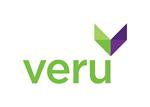Veru Inc. (NASDAQ: VERU), a biopharmaceutical company focused on developing novel medicines for COVID-19 and other viral and ARDS-related diseases and for the management of breast and prostate cancers, today announced the appointment of Joel Batten as Executive Vice President and Head of its U.S. Infectious Disease Franchise effective May 23, 2022.
MIAMI, May 18, 2022 (GLOBE NEWSWIRE) -- Veru Inc. (NASDAQ: VERU), a biopharmaceutical company focused on developing novel medicines for COVID-19 and other viral and ARDS-related diseases and for the management of breast and prostate cancers, today announced the appointment of Joel Batten as Executive Vice President and Head of its U.S. Infectious Disease Franchise effective May 23, 2022.
Most recently Mr. Batten has been the Head of the Respiratory Syncytial Virus (RSV) Franchise at Sobi North America where he was responsible for the Synagis business with gross revenue of approximately $600M and a team of over 160 employees. Mr. Batten led sales and marketing for the RSV Franchise as well as strategy for market access, distribution and patient access services. Prior to Sobi, he spent approximately 20 years in a number of positions of increasing responsibility at AstraZeneca / MedImmune and Sanofi Aventis in various infectious disease franchises including commercial infrastructure build-out, product launch, sales management, marketing, public health sales, and government affairs.
“Joel is an accomplished commercial leader with extensive knowledge in viral infectious disease product commercialization,” said Mitchell Steiner, M.D., Chairman, President and Chief Executive Officer of Veru Inc. “We are excited to have Joel join Veru at such a critical juncture in our Company’s history as we build on the momentum of our positive Phase 3 sabizabulin for COVID-19 trial, our planned EUA submission, and the transition to delivering sabizabulin, if EUA is granted, to hospitalized COVID-19 patients at high risk for ARDS. Joel will be the head of our newly formed U.S. Infectious Disease Franchise and will be responsible for developing and leading all aspects of our U.S. go-to-market strategy for sabizabulin for COVID, if authorized, as well as planned future indications for other viral and ARDS-related and inflammatory diseases.”
About Veru Inc.
Veru is a biopharmaceutical company focused on developing novel medicines for COVID-19 and other viral and ARDS-related diseases and for the management of breast and prostate cancers.
A double-blind, randomized, placebo-controlled Phase 3 COVID-19 clinical trial was conducted in approximately 210 hospitalized COVID-19 patients with moderate to severe COVID (≥ WHO 4-supplemental oxygen) at high risk for ARDS and death. The primary endpoint was the proportion of deaths by Day 60. Based on a planned interim analysis of the first 150 patients randomized, the Independent Data Monitoring Committee unanimously halted the study for overwhelming efficacy and safety. Treatment with sabizabulin 9mg once daily, an oral, first-in-class, new chemical entity, cytoskeleton disruptor that has dual anti-inflammatory and antiviral properties, resulted in a clinically meaningful and statistically significant 55.2% relative reduction in deaths. After a pre-EUA meeting with FDA, the Company is in the process of submitting a request for FDA emergency use authorization. FDA granted Fast Track designation to the Company’s COVID-19 program in January 2022.
The Company’s late-stage breast cancer development portfolio comprises enobosarm, a selective androgen receptor targeting agonist, and sabizabulin.
Current studies on the two drugs include:
- Enrolling Phase 3 ARTEST study of enobosarm in androgen receptor positive, estrogen receptor positive, and human epidermal growth factor receptor two negative (AR+ ER+ HER2-) metastatic breast cancer with AR ≥ 40% expression (third-line metastatic setting), and which has been granted Fast Track designation by the FDA.
- Enrolling Phase 3 ENABLAR-2 study of enobosarm + abemaciclib (a CDK 4/6 inhibitor) combination in AR+ ER+ HER2- metastatic breast cancer with AR ≥ 40% expression (second-line metastatic setting). The Company and Eli Lilly and Company have entered into a clinical study collaboration and supply agreement for the ENABLAR-2 study. Lilly is providing clinical supply of Verzenio® (abemaciclib).
- Planned Phase 2b study of sabizabulin in AR+ ER+ HER2- metastatic breast cancer with AR < 40% expression (third-line metastatic setting).
Veru’s late-stage prostate cancer portfolio comprises sabizabulin, VERU-100, a long-acting GnRH antagonist, and zuclomiphene citrate, an oral nonsteroidal estrogen receptor agonist.
Current studies on these drugs include:
- Enrolling Phase 3 VERACITY study in metastatic castration and androgen receptor targeting agent resistant prostate cancer prior to IV chemotherapy.
- Enrolling Phase 2 dose-finding study of VERU-100 in advanced hormone sensitive prostate cancer.
- Planned Phase 2b study of zuclomiphene citrate to treat hot flashes in men with advanced prostate cancer undergoing androgen deprivation therapy.
Veru also has a commercial sexual health division - Urev, the proceeds of which help fund its drug development programs, comprised of 2 FDA approved products:
- ENTADFI™ (finasteride and tadalafil) capsules for oral use, a new treatment for benign prostatic hyperplasia, for which commercialization launch plans are underway.
- FC2 Female Condom® (internal condom), for the dual protection against unplanned pregnancy and the transmission of sexually transmitted infections which is sold in the U.S. and globally.
Forward-Looking Statements
The statements in this release that are not historical facts are “forward-looking statements” as that term is defined in the Private Securities Litigation Reform Act of 1995. Forward-looking statements in this release include statements regarding: whether and when the Company will submit an EUA application, or receive an emergency use authorization or any approval from FDA or from any regulatory authority outside the U.S. for sabizabulin for certain COVID-19 patients; whether and when sabizabulin will become an available treatment option for certain COVID-19 patients in the U.S. or anywhere outside the U.S.; whether the Company will have sufficient supply of sabizabulin to meet demand, if an emergency use authorization or other approval is granted; whether the Company will secure any advance purchase agreement with the U.S. government or any foreign government; whether the current and future clinical development and results will demonstrate sufficient efficacy and safety and potential benefits to secure FDA approval of the Company’s drug candidates and companion diagnostic; whether the drug candidates will be approved for the targeted line of therapy; the anticipated design and scope of clinical studies and FDA acceptance of such design and scope; whether any regulatory pathways, including the accelerated Fast Track designations, to seek FDA approval for sabizabulin, enobosarm or any of the Company’s drug candidates are or continue to be available; whether the expected commencement and timing of the Company’s clinical studies, including the Phase 3 ENABLAR-2 study, the sabizabulin monotherapy Phase 2b clinical study for 3rd line treatment of metastatic breast cancer, the Phase 2 registration clinical study for VERU-100, and the development of the companion diagnostic will be met; when clinical results from the ongoing clinical studies will be available, whether sabizabulin, enobosarm, VERU-100, zuclomiphene, and ENTADFI will serve any unmet need or, what dosage, if any, might be approved for use in the U.S. or elsewhere, and also statements about the potential, timing and efficacy of the rest of the Company’s development pipeline, and the timing of the Company’s submissions to FDA and FDA’s review of all such submissions; whether any of the selective clinical properties previously observed in clinical studies of sabizabulin, enobosarm, VERU-100 or other drug candidates will be replicated in the current and planned clinical development program for such drug candidates and whether any such properties will be recognized by the FDA in any potential approvals and labeling; whether the companion diagnostic for enobosarm will be developed successfully or be approved by the FDA for use; and whether and when ENTADFI will be commercialized successfully. These forward-looking statements are based on the Company’s current expectations and subject to risks and uncertainties that may cause actual results to differ materially, including unanticipated developments in and risks related to: the development of the Company’s product portfolio and the results of clinical studies possibly being unsuccessful or insufficient to meet applicable regulatory standards or warrant continued development; the ability to enroll sufficient numbers of subjects in clinical studies and the ability to enroll subjects in accordance with planned schedules; the ability to fund planned clinical development; the timing of any submission to the FDA or other regulatory authorities and any determinations made by the FDA or any other regulatory authority, including the risk that the Company may not be able to obtain an EUA from the FDA or similar authorizations from other regulatory authorities on a timely basis or at all; any agreements or positions taken by the FDA in a pre-EUA meeting does not bind the FDA or prevent it from later taking a different position, asking for more data or delaying or denying the application; the possibility that as vaccines become widely distributed the need for new COVID-19 treatment candidates may be reduced or eliminated; government entities possibly taking actions that directly or indirectly have the effect of limiting opportunities for sabizabulin as a COVID-19 treatment, including favoring other treatment alternatives or imposing price controls on COVID-19 treatments; the Company lacks experience in scaling up or commercializing a drug product and may not be able to successfully commercialize sabizabulin as a COVID-19 treatment; the Company may be unable to manufacture sabizabulin as a COVID-19 treatment in sufficient quantities or at sufficient yields; the Company’s existing products and any future products, if approved, possibly not being commercially successful; the effects of the COVID-19 pandemic and measures to address the pandemic on the Company’s clinical studies, supply chain and other third-party providers, commercial efforts, and business development operations; the ability of the Company to obtain sufficient financing on acceptable terms when needed to fund development and operations; demand for, market acceptance of, and competition against any of the Company’s products or product candidates; new or existing competitors with greater resources and capabilities and new competitive product approvals and/or introductions; changes in regulatory practices or policies or government-driven healthcare reform efforts, including pricing pressures and insurance coverage and reimbursement changes; the Company’s ability to successfully commercialize any of its products, if approved; risks relating to the Company’s development of its own dedicated direct to patient telemedicine and telepharmacy services platform, including the Company’s lack of experience in developing such a platform, potential regulatory complexity, and development costs; the Company’s ability to protect and enforce its intellectual property; the potential that delays in orders or shipments under government tenders or the Company’s U.S. prescription business could cause significant quarter-to-quarter variations in the Company’s operating results and adversely affect its net revenues and gross profit; the Company’s reliance on its international partners and on the level of spending by country governments, global donors and other public health organizations in the global public sector; the concentration of accounts receivable with our largest customers and the collection of those receivables; the Company’s production capacity, efficiency and supply constraints and interruptions, including potential disruption of production at the Company’s and third party manufacturing facilities and/or of the Company’s ability to timely supply product due to labor unrest or strikes, labor shortages, raw material shortages, physical damage to the Company’s and third party facilities, COVID-19 (including the impact of COVID-19 on suppliers of key raw materials), product testing, transportation delays or regulatory actions; costs and other effects of litigation, including product liability claims; the Company’s ability to identify, successfully negotiate and complete suitable acquisitions or other strategic initiatives; the Company’s ability to successfully integrate acquired businesses, technologies or products; and other risks detailed from time to time in the Company’s press releases, shareholder communications and Securities and Exchange Commission filings, including the Company’s Form 10-K for the fiscal year ended September 30, 2021 and subsequent quarterly reports on Form 10-Q. These documents are available on the “SEC Filings” section of our website at www.verupharma.com/investors. The Company disclaims any intent or obligation to update these forward-looking statements.
Verzenio® is a registered trademark of Eli Lilly and Company
Investor and Media Contact:
Samuel Fisch
Executive Director, Investor Relations and Corporate Communications
Email: veruinvestor@verupharma.com






